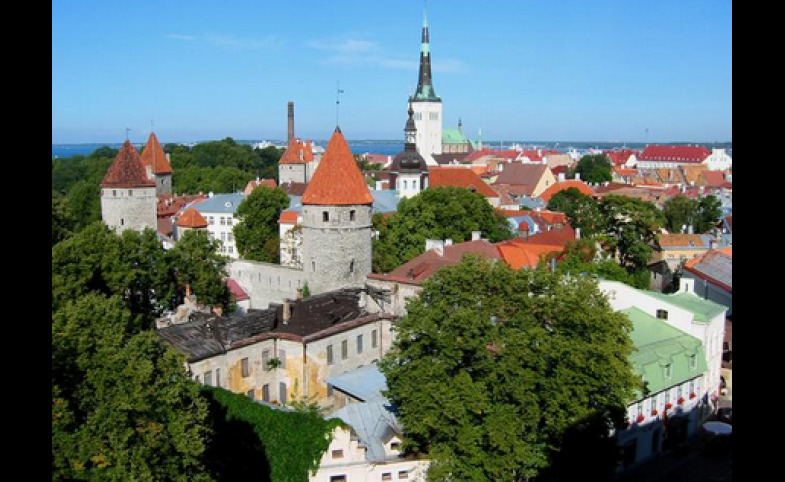China and Russia are fighting a heated war with the United States. It is an intense battle of words and ideas fought between state-sponsored broadcasters, on the airwaves, and online. In 2011, then-Secretary of State...
KEEP READINGThe CPD Blog is intended to stimulate dialog among scholars and practitioners from around the world in the public diplomacy sphere. The opinions represented here are the authors' own and do not necessarily reflect CPD's views. For blogger guidelines, click here.

Russia’s Regional Militarism and the Case for Public Diplomacy
TALLINN --- Estonia’s capital seems a peaceful place. Tallinn’s cobblestoned streets are lined by medieval walls and towers, and tourists stroll amid churches and coffee shops. But Estonians live in a rough neighborhood; their eastern neighbor is Russia, which has never fully accepted that Estonia prefers the company of EU and NATO countries.
The Annual Baltic Conference on Defense took place in Tallinn last week, with principal focus on how soft power and hard power might be combined as smart power. Discussions featured the president of Estonia, Toomas Hendrik Ilves, and U.S. Air Force General Philip Breedlove, the Supreme Allied Commander Europe and commander of the U.S. European Command. Although their comments touched on conflicts ranging from Mali to Afghanistan, the threat of Russian adventurism was a persistent subtext, particularly among representatives of the Baltic countries. (The conference was conducted under the Chatham House rule, so information in this article may not be directly attributed to anyone in attendance.)
As one of the few Americans participating, I realized quickly that the physical distance between the United States and Russia has made us nonchalant about Russian power and intentions. We allow ourselves to be distracted by ploys such as Russian president Vladimir Putin’s venting on The New York Times op-ed page, while his near neighbors feel the pressure of “soft coercion” applied by Russia. During recent months, Russian military exercises have included simulated air strikes and electronic warfare against Sweden and substantial troop movements near Poland and Baltic states. NATO will hold its own exercises later this year, but they will be considerably smaller in scale (and menace) than those conducted by Russia. If the former Soviet satellite states feel neglected by the West, nerves will be on edge and chances will increase that during a military exercise a tragic mistake might occur and lead to bloodshed.
One way to avoid this is for the Baltic countries to rely on soft power to build the kind of international support that would make the Russians act more carefully. Few in the West, particularly in the United States, understand that these states, which have been free from Soviet control for only about 20 years, have become natural allies for the West’s major powers. Not everything about the governments of Eastern Europe is perfect, but most of these countries have come a long way since Soviet days.
Soft power, channeled through public diplomacy, could better establish the political and cultural identities of these states in ways that would help them build international constituencies. If other countries’ publics feel that they “know” the Baltic nations, they might pay more attention to them and be inclined to support them in disputes with Russia.
For that matter, NATO itself could do more to reach the publics of its member states and others. NATO seems to take for granted that its member countries’ publics recognize its value and will continue indefinitely to provide NATO with resources. That is a hubristic assumption that fails to recognize the sometimes fickle nature of public opinion, particularly when that opinion is not consistently nurtured.
NATO and Russia have abundant hard power at their disposal, while the Baltic nations on their own have little choice but to rely on soft power. That does not mean that these countries operate from a position of weakness. Those wishing to wield soft power through public diplomacy can find plenty of venues for doing so. Among these, the ever-expanding media universe provides forums for courting global publics. These media tools are the great equalizers of today’s world. Using them wisely as part of broader public diplomacy efforts could help bring some much-needed balance to the politically tense Baltic-Russian relationship.
Visit CPD's Online Library
Explore CPD's vast online database featuring the latest books, articles, speeches and information on international organizations dedicated to public diplomacy.
POPULAR ARTICLES
-
January 29
-
January 20
-
January 28
-
February 6
-
January 8
Join the Conversation
Interested in contributing to the CPD Blog? We welcome your posts. Read our guidelines and find out how you can submit blogs and photo essays >.












